#settembrini
Text

77 notes
·
View notes
Text
L'università
La coscienza mi diceva: «Tu sei pure un ignorante; gli studi li hai fatti in fretta; scienze non ne conosci, di filosofia ricordi soltanto che cosa è idea, nel latino sei corto, in italiano non scrivi abbastanza corretto: bisogna rifarti da capo. Andiamo dunque nell’università, dove ci ha tanti professori, che insegnano tante belle cose. Bisogna acquistare buone e sode cognizioni, e poi lasciamo fare a Dio.»
L. Settembrini, Ricordanze e altri scritti [1879], Torino, UTET, 2013
12 notes
·
View notes
Photo

Recorded sound, which artificially preserves the unpreservable, increases the likelihood of listening without hearing, since it can be listened to at home or in motion, thus allowing us to reduce music to background activity and eliminate the possibility of total concentration - i.e., thought. The moral responsibility for this rests entirely with the individual human being, who can determine whether a recording is a means of instruction, rendering the music more familiar through repetition - the equivalent of rereading a passage in a book - or simply a means of distraction in the sense of the music played by the band in Thomas Mann’s The Magic Mountain, to which the philosopher Settembrini says, “The human being, unfortunately, has a tendency to imbue objects with moral authority, so as not to take the responsibility himself. Is a knife an instrument with which one can commit murder - therefore an immoral instrument - or is it an instrument with which bread can be cut and a fellow human being fed - therefore an instrument of human generosity? It is the human being’s application of it that determines its moral qualities.”
- Daniel Barenboim, pianist, conductor, author and music director
#barenboim#daniel barenboim#quote#music#sound#thomas mann#philosophy#orchestra#settembrini#listening#hearing#arts#culture#pianissimo#conductor#icon#musical prodigy#classical music
36 notes
·
View notes
Text
Staub und Sterne vs. Staub und Sterne
Staub und Sterne vs. Staub und Sterne
Vor der Trollhöhle haben sich ein paar wütende Gestalten mit Fackeln, Mistgabeln, Knüppeln und großen Kuhglocken versammelt und lärmen so, dass man den Krach noch meilenweit hört. Der Troll steht in Mitten der wilden Schar, vermummt, aber auf Grund seiner trollhaften Körpermerkmale sofort als der Troll erkennbar. Hals Habermeister steht er dem Haberfeldtreiben vor und ruft laut:
„Wo ist denn…
View On WordPress
0 notes
Photo

Biscotti settembrini🍁🍂 nuova ricetta sul mio canale YouTube ⬆️link in bio⬆️ #settembre #settembrini #biscotti #cookies #biscottiaifichi #confetturadifichi #food (presso Puglia, Italy) https://www.instagram.com/p/Ch-VxxBr6hv/?igshid=NGJjMDIxMWI=
0 notes
Video
youtube
Bernard-Henri Lévy vs. Aleksandr Dugin – Nexus Symposium 21 September 20...
1 note
·
View note
Photo
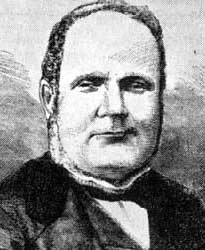
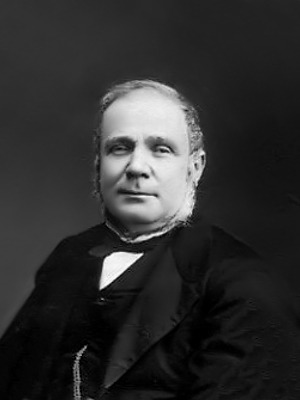
Luigi Settembrini (deceased)
Gender: Male
Sexuality: Gay
DOB: 17 April 1813
RIP: 3 November 1877
Ethnicity: White - Italian
Occupation: Writer, politician, professor
#Luigi Settembrini#lgbt history#lgbt people#lgbt#mlm#male#gay#1813#rip#historical#white#italian#writer#politician#teacher
42 notes
·
View notes
Text
[The two lions][Nagisa Furuya]
Non perdetevi la nuova emozionante opera dell’autrice di All About Ocean Blue e You are in the Blue Summer: The two lions di Nagisa Furuya
Junpei Shishido è un ragazzo estroverso, amichevole e solare. Un giorno, incontra all’università qualcuno che sembra essere il suo esatto opposto: Leo. Quest’ultimo è infatti scontroso, taciturno e molto poco propenso alla socialità. Junpei non si lascia scoraggiare per così poco e, parlandogli, scopre che si tratta di un suo ex-compagno delle superiori che all’epoca godeva di pessima fama… Cosa…
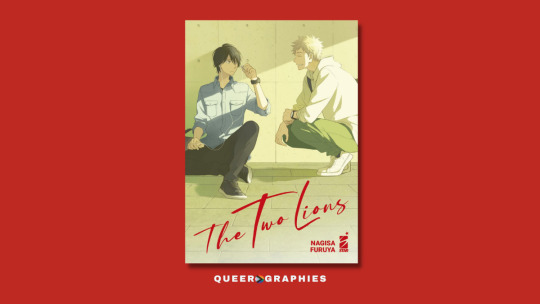
View On WordPress
#2023#Alice Settembrini#ふたりのライオン#comics#fumetti#gay#Giappone#LGBT#LGBTQ#Nagisa Furuya#Star Comics#The two lions
0 notes
Text
Con "Luci d'ombra" lo scrittore Salvatore Enrico Anselmi è in concorso al Premio Settembrini 2023.
0 notes
Text
Dolci ricordi di qualche sorriso "rubato" e di qualche fusa donata

1 note
·
View note
Text
The logic of cultural assimilation and the desire to climb the ladder of prestige led the Jewish bourgeoisie to send its sons to the University, especially towards the end of the nineteenth century:
“Just like the majority of German businessmen, Jews wanted to climb socially… They wanted their sons and sons-in-law to be more valued than they were. A career as an officer or as a high-ranking government official, which were the goals of a young Christian man, was closed to Jews … only university studies were open to him.”
As a result, in 1895 Jews comprised 10% of the student body in German universities, which was ten times the percentage of Jews in the overall population (1.05%). This massive presence of bourgeois Jewish youth in higher education quickly led to the formation of a new social category: the Jewish intelligentsia. Jewish intellectuals of German culture had, of course, existed since the late eighteenth century (Moses Mendelssohn), but it was only at the end of the nineteenth century that the phenomenon became so widespread as to constitute a new social fact. These Jewish intellectuals, déclassé, unstable and free of any precise social attachment, were a typical example of the sozialfreischwebende Intelligenz that Mannheim spoke of. Their condition was eminently contradictory: deeply assimilated yet largely marginalized; linked to German culture yet cosmopolitan; uprooted and at odds with their business and bourgeois milieu of origin; rejected by the traditional rural aristocracy yet excluded in career terms within their natural sphere of acceptance (the university). In a state of ideological availability, they were soon attracted to the two principal poles of German cultural life, which could be named after the famous characters from Thomas Mann’s Magic Mountain: ‘Settembrini’, the liberal, democratic and republican philanthropist, and ‘Naphta’, the conservative/revolutionary romantic.
For many young Jewish intellectuals, rationalism, progressive evolutionism, Aufklärung and neo-Kantian philosophy became the primary reference, in some cases combined with a Judaism that was diluted or reduced to monotheist ethics (Hermann Cohen). From this world-view several political options were available, ranging from moderate liberalism (the ideology of the Jewish bourgeoisie itself), to social democracy (Eduard Bernstein), Marxism (Max Adler, Otto Bauer and the Austrian Marxists) and even Communism (Paul Levi, Ruth Fischer, Paul Frölich, August Thalheimer).
Nevertheless, at the turn of the century, anti-capitalist romanticism was the dominant movement within the culture of Mitteleuropa. Sociologically speaking, it was inevitable that a significant portion of the new university-trained Jewish intelligentsia would be attracted by the romantic critique of industrial civilization: ‘Naphta!’ The intelligentsia eagerly discovered the nostalgic and anti-bourgeois Weltanschauung predominant in academia – notably in the Geisteswissenschaften (Humanities), where the majority of Jewish students enrolled. These students subsequently rejected their fathers’ business careers, revolted against their bourgeois family milieu and aspired intensely to an ‘intellectual life style’. This generational break, which many Jewish intellectuals speak of in their autobiographies, opposed the anti-bourgeois youth – passionately interested in Kultur, spirituality, religion and art – to their entrepreneurial parents – merchants or bankers, moderate liberals and good German patriots, indifferent to religious matters. In a recent autobiographical interview, Leo Löwenthal, the Frankfurt School sociologist of literature, summarized the feeling that was common among many intellectuals of his generation: ‘My family household, as it were, was the symbol of everything I did not want – shoddy liberalism, shoddy Aufklärung, and double standards.’
Redemption and Utopia: Jewish Libertarian Thought in Central Europe, Michael Löwy
64 notes
·
View notes
Text

Settembrini.
109 notes
·
View notes
Text


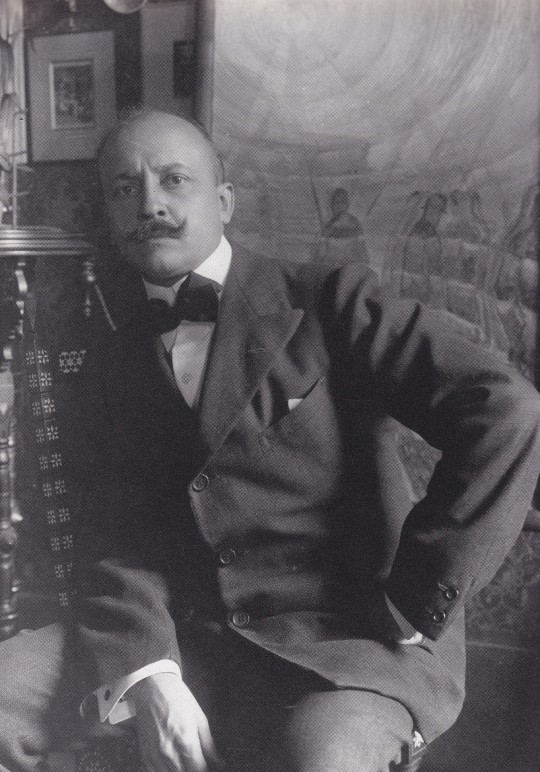








La regola estrosa
Cent'anni di eleganza maschile italiana
a cura di Giannino Malossi
interventi e saggi di Gillo Dorfles, Vittoria de Buzzaccarini, Giannino Malossi, Adriana Mulassano, Luigi Settembrini
Electa, 1993, 184 pagine, 22x32,5cm, ISBN 97888 43 544 059
euro 50,00
email if you want to buy [email protected]
Questo libro e la mostra che lo ha accompagnato con successo a Firenze cercano di riempire un vuoto nella cultura della moda italiana, o perlomeno di cominciare a farlo. In copertina del libro Luchino Visconti nel 1934 fotografato da Horst P. Horst. Una mostra e un libro promossi dal Centro di Firenze per la Moda Italiana, prodotti e realizzati per Pitti Immagine . Mostra Stazione Leopolda, Firenze 24 giugno - 31 ottobre 1993
Il prodotto Italian style è simbolo di tecniche artigianali, abilità produttive e conoscenze che spaziano dalla moda, all’industria automobilistica, fino alla cultura enogastronomica. Lo stile del Bel Paese, riconosciuto universalmente, è ricco di fenomeni sociali, a volte, inaccessibili agli stessi italiani, non sempre in grado di cogliere le varie istanze culturali che avvengono sotto i loro occhi. L’idea di Giannino Malossi è quella di ripercorrere, attraverso figure iconiche di stile, il mondo dell’eleganza maschile italiana. Un’analisi che spazia da Gabriele D’Annunzio a Nuvolari, da Curzio Malaparte a Pucci, da Montezemolo a Armani, alcuni tra i celebri esponenti della “Bella figura” italiana.
23/01/24
#regola estrosa#fashion exhibition catalogue#Stazione Leopolda Firenze 1993#Giannino Malossi#Gabriele D'Annunzio#Totò#Philippe Daverio#Giovanni Gastel#Vittorio Solbiati#Beppe Modenese#Luchino Visconti#fashion books#fashionbooksmilano
11 notes
·
View notes
Text
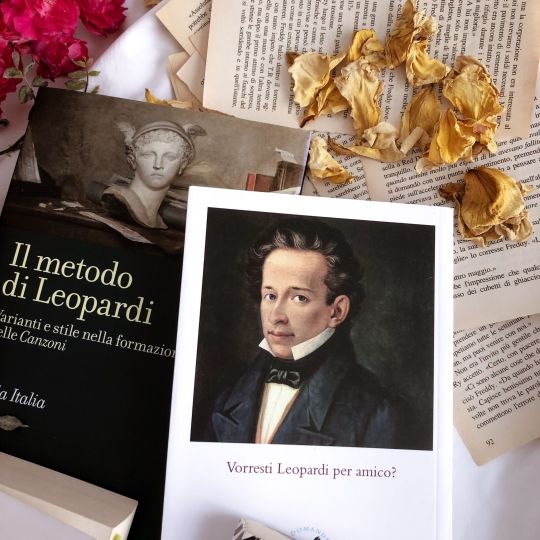
Scrive Luigi Settembrini: "Nel fondo della sua anima c'era la fede, come c'era l'amore e il desiderio ardentissimo della vita, della bellezza, e di tutte le illusioni tanto care all'uomo, e necessarie, e reali per l'uomo.
Chi oserebbe dire che il Leopardi è ateo, o sensista, o materialista? Egli è come Giobbe, che maladice il giorno che è nato, e grida che il suo dolore è troppo e non ha scopo; egli bestemmia Dio perchè lo crede, ma lo dice un essere malefico, un brutto potere che ascoso a comun danno impera, una mano che flagellando si colora nel mio sangue innocente. Non avere una colpa, e sofferire tanto, perchè? Perchè questa ragione spietata che mi toglie tutte le illusioni, e mi fa dimandare a tutti gli esseri, perché? e nessuno mi sa rispondere? Per qual fine, per quale necessità, per qual bene altrui io debbo essere straziato sì fieramente dal dolore? Io non so qual uomo potrebbe dargli una risposta ragionevole."
È quindi Settembrini a istituire un paragone esplicito tra Leopardi e Giobbe (quantunque vi abbia accennato il Leopardi stesso nei Nuovi Credenti), ma egli ne fa, a mio avviso arbitrariamente, piuttosto un bestemmiatore che un ateo: sta qui agendo la censura cattolica e ideologica del pensiero leopardiano? Le stesse illusioni, a mio avviso, hanno ragion d'essere sullo sfondo di un "reale" nulla; non nella prospettiva della realtà divina, in cui sarebbero sostanze, e non nomi, come la virtù (vedi Bruto e Teofrasto - ti tenni per una sostanza, ed eri una parola - e la "vendetta sulla virtù" che vorrebbe prendersi il Leopardi).
E sempre in quest'ottica riduttiva della portata del pensiero leopardiano, procede poche pagine più in là Settembrini: "Io vi esorto, o giovani, a tener cara la memoria di Giacomo Leopardi, e studiarne amorosamente le opere; ma guardatevi dal ripeterne i pensieri e dall'imitarlo nella dolorosa poesia, perchè egli fu una misera eccezione della natura umana." Come volevasi dimostrare: innanzitutto si amplifica il lamento leopardiano, fino a renderlo, pur nella sua tragicità, querulo e pretestuoso, al punto di provocarne un istintivo rigetto; poi si procede al consueto affondo, sentenziando che egli fu "una misera eccezione della natura umana". Siete sicuri che il vostro amato Leopardi, che nella Ginestra dice "nobil natura è quella…", sia contento di essere ricordato così? Abbiate ali, abbiate trivelle per concepire anche solo un briciolo della grandezza del suo pensiero; staccatevi da voi stessi (o dalla vostra maschera), disarmatevi, andategli incontro, e vi porterà a nuove profondità e altezze: rendetegli davvero "cara" la memoria che egli tiene presso gli uomini, per vostro mezzo.
Non difendetevi da Leopardi: egli non vuole convincervi di nulla. Non vi porterà via Dio, Gesù Cristo, l'aldilà; paradossalmente, vi porterà dappresso a questi concetti meglio di un santo cattolico, in quanto egli è portatore di onestà, amore per gli altri, intelligenza.
State tranquilli: Leopardi non è un'eccezione della natura umana. Grazie al cielo.
3 notes
·
View notes
Text
Sono molto contenta di quest'atmosfera e questo tempo settembrini ma diocane ho già un raffreddore terribilee
6 notes
·
View notes